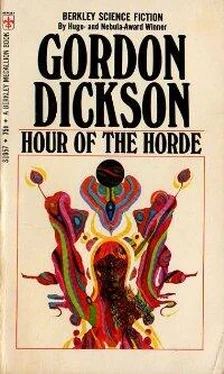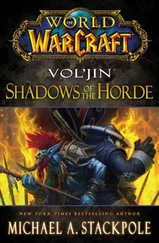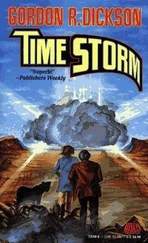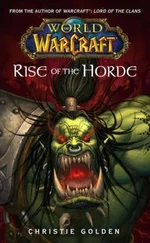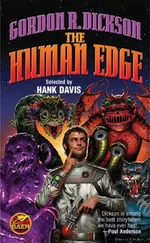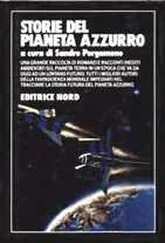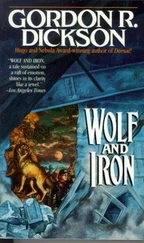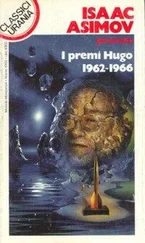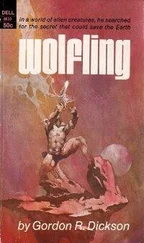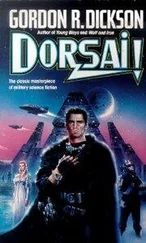Gordon Dickson - Hour of the Horde
Здесь есть возможность читать онлайн «Gordon Dickson - Hour of the Horde» весь текст электронной книги совершенно бесплатно (целиком полную версию без сокращений). В некоторых случаях можно слушать аудио, скачать через торрент в формате fb2 и присутствует краткое содержание. Год выпуска: 1971, ISBN: 1971, Издательство: Berkley Medallion, Жанр: Фантастика и фэнтези, на английском языке. Описание произведения, (предисловие) а так же отзывы посетителей доступны на портале библиотеки ЛибКат.
- Название:Hour of the Horde
- Автор:
- Издательство:Berkley Medallion
- Жанр:
- Год:1971
- ISBN:0-425-01957-8
- Рейтинг книги:4 / 5. Голосов: 1
-
Избранное:Добавить в избранное
- Отзывы:
-
Ваша оценка:
- 80
- 1
- 2
- 3
- 4
- 5
Hour of the Horde: краткое содержание, описание и аннотация
Предлагаем к чтению аннотацию, описание, краткое содержание или предисловие (зависит от того, что написал сам автор книги «Hour of the Horde»). Если вы не нашли необходимую информацию о книге — напишите в комментариях, мы постараемся отыскать её.
Hour of the Horde — читать онлайн бесплатно полную книгу (весь текст) целиком
Ниже представлен текст книги, разбитый по страницам. Система сохранения места последней прочитанной страницы, позволяет с удобством читать онлайн бесплатно книгу «Hour of the Horde», без необходимости каждый раз заново искать на чём Вы остановились. Поставьте закладку, и сможете в любой момент перейти на страницу, на которой закончили чтение.
Интервал:
Закладка:
Because it was Sunday, the walkway was all but deserted. But looking now, Miles saw three other figures near its far end. The nearest of them was a tall, thin, black-haired girl hugging an armful of books to her nearly breastless front. Beyond the girl were a squarely built, blue-suited older man who looked like one of the academic staff and a stocky, sweatered young man with the brown leather scabbard of a slide rule hanging at his belt. Miles started toward them, lugging his paints and canvas.
But then, suddenly, hope leaped faintly within him. For the other three were also staring around themselves with a dazed air. As he watched, they moved toward each other, like people under a huddling instinct in a time of danger. By the time he reached them they were close together and already talking.
“But it has to be something!” the girl was saying shakily, hugging her books to her as if they were a life belt and she afloat on a storm-tossed sea.
“I tell you, it’s the end!” said the older man. He was stiff and gray in the face, and he spoke with barely moving, gray lips, holding himself unnaturally erect. The reddened sunlight painted rough highlights on his bloodless face. “The end of the world. The sun’s dying…”
“Dying? Are you crazy?” shouted the sweatered young man with the slide rule. “It’s dust in the atmosphere. A dust storm south and west of us maybe. Didn’t you ever see a sunset—”
“If it’s dust, why aren’t things darker?” asked the girl. “Everything’s clear as before, even the shadows. Only it’s red, all red—”
“Dust! Dust, I tell you!” shouted the young man. “It’s going to clear up any minute. Wait and see…”
Miles said nothing. But the first leap of hope was expanding into a sense of relief that left him weak at the knees. It was not him then. The suddenly bloody color of the world was not just a subjective illusion caused by his own failing eyesight or exhausted mind, but the result of some natural accident of atmosphere or weather. With the sense of relief, his now-habitual distaste for wasting precious time in social talk woke in him once more. Quietly he turned away and left the other three still talking.
“I tell you,” he heard the sweatered young man insisting as he moved off, “it’ll have to clear up in a minute. It can’t last…”
But it did not clear up, as Miles continued on across the east campus toward his rooming house in the city beyond. On the way he passed other little knots of people glancing from time to time up at the red sun and talking tensely together. Now that his own first reaction to the sun change was over, he found a weary annoyance growing in him at the way they all were reacting.
To a painter, a change in the color values of the daylight could be important. But what was it to them, these muttering, staring people? In any case, as the sweatered young man had said, it would be clearing up shortly.
Pushing the whole business out of his mind, Miles slogged on homeward, feeling the tiredness creeping up in him as the working excitement drained out of him, and his one good arm, for all its unusual development of muscle, began to weary with the labor of lugging canvas and paint box the half mile to his rooming house.
But the subject of the sun change was waiting for him even there. As he walked in the front door of his rooming house at last, he heard his landlady’s television set sounding loudly from the living room of her ground-floor apartment.
“No explanation yet from our local weather bureau or the U.S. Meteorological Service…” Miles heard, as he passed the open living-room door. Through it, he had a glimpse of Mrs. Arndahl, the landlady, sitting there with several of the other roomers, silently listening, “No unusual disturbances in the sun or in our own atmosphere have been identified so far, and the expert opinion believes such disturbances could not have taken place without…”
There was a stiffness, an aura of alarm about those watching and listening to the set, that woke annoyance again in Miles. Everyone around him, it seemed, was determined to get worked up about this purely natural event. He stepped by quickly but quietly on the brown carpet before the open door and mounted the equally worn carpet of the stairs to the silence and peace of his own large second-floor room.
There he gratefully laid down at last his canvas and painting tools in their proper places. Then he flopped heavily, still dressed, back down on his narrow bed. The white glass curtain fluttered in the breeze from his half-open window. Weariness flooded through him.
It was a satisfying weariness, in spite of the failure of the afternoon’s work—a deep exhaustion, not merely of body and mind, but of imagination and will as well, reflecting the effort he had put into the painting. But still… frustration stirred in him once more—that effort had still been nothing more than what was possible to any normal man. It had not been the creative explosion for which he searched.
For the possibility of that explosion was part of his own grim theory of art, the theory he had built up and lived with ever since that day when he had been painting at the foot of the west bluff, four years ago. According to the theory, there should be possible to an artist something much more than any painter had ever achieved up to now. Painting that would be the result of the heretofore normal creative outburst many times multiplied—into an overpassion.
To himself, more prosaically, he called this overpassion “going into overdrive,” and it should be no more impossible than the reliably recorded displays of purely physical ability shown by humans under extreme emotional stress—in that phenomenon known as hysterical strength.
Hysterical strength, Miles knew, existed. Not merely because he had evidence of it, but also in the thick manila envelope of newspaper clippings he had collected over the last four years. Clippings like the one about the distraught mother who had lifted the thousands of pounds of her overturned car in order to pull her trapped baby from underneath the vehicle. Or the instance of the bedridden old man in his eighties who had literally run to safety, as cleverly as any slack-wire performer, across a hundred feet of telephone wire to a telephone pole to escape from the third floor of a burning apartment building.
He did not need these things to believe in hysterical strength, because he had expressed it. Himself.
And what the body could do, he told himself again now, wrapped in exhaustion on his bed, the creative spirit should be able to do as well. Someday yet he would tap it artistically—that creative overdrive. And when he did, he would at last tear himself free of that bitterness in him that saw old animal guilts and angers, all the primitive limitations of man—mirrored in everything he tried to reproduce on canvas.
When that moment came, he thought, dully and pleasantly now, sinking into drowsiness, a scene like the one he had painted today would show the future, the promise of Man—instead of a human past of bloody instinct and Stone Age violence underlying all that civilization had built.
The exhaustion lapping around him sucked him slowly down into sleep, like a foundering boat. He let himself sink, unresisting. It was an hour before he was due to meet Marie Bourtel off campus for dinner. Time enough for him to rest a few minutes before washing and dressing to go out. He lay, his thoughts flickering gradually into extinction…
Sleep took him.
When he woke, Miles could not at first remember what time of day it was or why he had wakened. And then it came again—a pounding on his door and the voice of his landlady was calling through it to him.
“Miles! Miles !” Mrs. Arndahl’s voice came thinly past the door, as if she were pushing it through the crack underneath the door. “Phone call for you! Miles, do you hear me?”
Читать дальшеИнтервал:
Закладка:
Похожие книги на «Hour of the Horde»
Представляем Вашему вниманию похожие книги на «Hour of the Horde» списком для выбора. Мы отобрали схожую по названию и смыслу литературу в надежде предоставить читателям больше вариантов отыскать новые, интересные, ещё непрочитанные произведения.
Обсуждение, отзывы о книге «Hour of the Horde» и просто собственные мнения читателей. Оставьте ваши комментарии, напишите, что Вы думаете о произведении, его смысле или главных героях. Укажите что конкретно понравилось, а что нет, и почему Вы так считаете.
